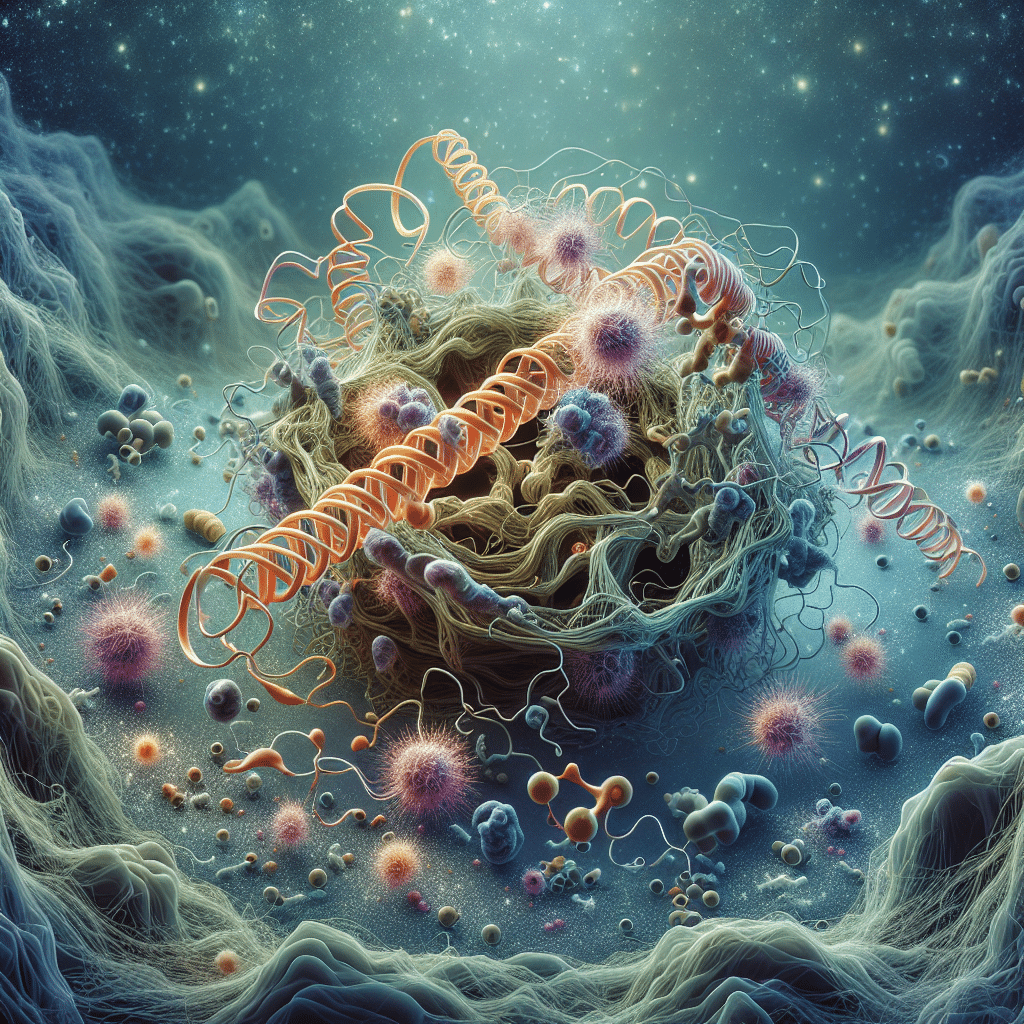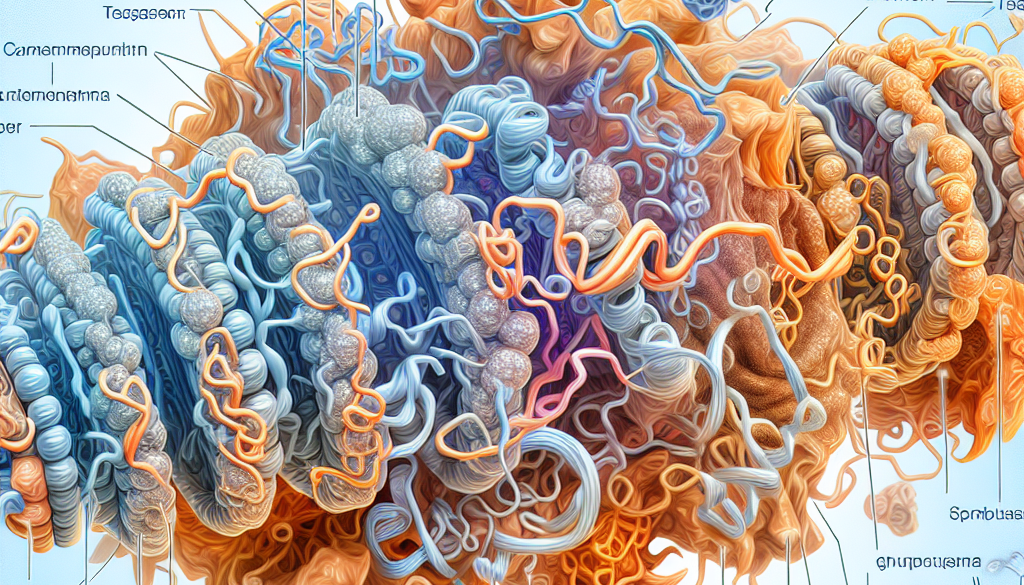Microtubule Associated Protein: A Key to Cellular Structure
-
Table of Contents
- Microtubule Associated Proteins: Pivotal for Cellular Structure and Function
- Understanding Microtubules and Their Functions
- The Role of Microtubule Associated Proteins
- Examples and Case Studies Highlighting the Importance of MAPs
- Statistics and Research on MAPs
- Conclusion: The Critical Role of MAPs in Cellular Health
- Discover High-Quality Proteins with ETprotein
Microtubule Associated Proteins: Pivotal for Cellular Structure and Function

Microtubule associated proteins (MAPs) are integral components of the cellular cytoskeleton, playing a crucial role in maintaining cell structure, facilitating intracellular transport, and regulating cell division. These proteins are essential for the proper functioning of eukaryotic cells and have been the subject of extensive research due to their involvement in various cellular processes and their implications in numerous diseases.
Understanding Microtubules and Their Functions
Before delving into the specifics of MAPs, it is important to understand the structure they associate with: microtubules. Microtubules are dynamic, filamentous structures composed of α- and β-tubulin dimers. They are involved in several key cellular functions, including:
- Providing structural support to the cell
- Facilitating intracellular transport of organelles and vesicles
- Forming the mitotic spindle during cell division
- Maintaining cell shape and polarity
Microtubules are inherently dynamic, constantly undergoing phases of growth and shrinkage, a process known as dynamic instability. This dynamic behavior is critical for their cellular functions and is tightly regulated by MAPs.
The Role of Microtubule Associated Proteins
MAPs are a diverse group of proteins that interact with microtubules to regulate their stability and function. They can be broadly classified into two categories:
- Structural MAPs: These proteins, such as MAP2 and tau, bind along the sides of microtubules, stabilizing them against disassembly.
- Motor MAPs: These are motor proteins, like kinesin and dynein, which use ATP to move along microtubules, transporting cellular cargo.
MAPs are also involved in:
- Modulating the dynamics of microtubule assembly and disassembly
- Linking microtubules to other cytoskeletal elements, such as actin filaments and intermediate filaments
- Mediating interactions between microtubules and cellular membranes
- Regulating signaling pathways that control cell cycle progression and differentiation
Examples and Case Studies Highlighting the Importance of MAPs
Research has highlighted the critical role of MAPs in various cellular processes and disease states. For instance:
- Neurodegenerative Diseases: Abnormalities in tau, a MAP, have been linked to neurodegenerative diseases such as Alzheimer’s. Hyperphosphorylated tau can form neurofibrillary tangles, a hallmark of the disease.
- Cancer: Alterations in MAP expression and function can disrupt normal cell division, contributing to cancer progression. For example, increased expression of certain MAPs has been associated with tumor growth and metastasis.
- Developmental Disorders: Mutations in genes encoding MAPs can lead to developmental disorders. Research has shown that mutations in the gene for a specific MAP can result in lissencephaly, a brain malformation.
These examples underscore the importance of MAPs in maintaining cellular integrity and the potential consequences of their dysfunction.
Statistics and Research on MAPs
Statistical data and research findings provide further insight into the significance of MAPs:
- Studies have shown that overexpression of certain MAPs can increase microtubule stability by up to 40%.
- Research indicates that MAPs are involved in over 80% of intracellular transport processes.
- Clinical trials targeting MAPs for therapeutic intervention are ongoing, with some showing promising results in slowing the progression of neurodegenerative diseases.
These statistics highlight the potential of MAPs as therapeutic targets and the need for continued research in this field.
Conclusion: The Critical Role of MAPs in Cellular Health
In conclusion, microtubule associated proteins are essential for the structural integrity and functionality of cells. They play a pivotal role in various cellular processes, including transport, cell division, and maintaining cell shape. The dysregulation of MAPs is associated with a range of diseases, making them important targets for therapeutic intervention. Continued research into MAPs will undoubtedly provide deeper insights into cellular mechanics and potentially lead to breakthroughs in treating diseases linked to cytoskeletal dysfunction.
Discover High-Quality Proteins with ETprotein
If you are in the market for premium protein products, ETprotein is your go-to source. With a reputation for excellence, this plant protein vegan protein Chinese factory manufacturer and supplier offers a wide array of organic bulk vegan protein and plant proteins. Their products, known for their neutral taste and non-GMO, allergen-free properties, are perfect for various industries, including nutraceuticals, pharmaceuticals, cosmeceuticals, veterinary, and food and beverage sectors.
ETprotein specializes in exporting and delivering tailor-made protein powder and finished nutritional supplements. Their extensive product range ensures that you will find the perfect solution for your protein needs, whether for Food and Beverage, Sports Nutrition, Weight Management, Dietary Supplements, Health and Wellness Products, or Infant Formula.
Trusted by leading global food and beverage brands and Fortune 500 companies, ETprotein upholds China’s reputation in the global market. For more information or to sample their products, please contact them and email sales(at)ETprotein.com today.
About ETprotein:
ETprotein, a reputable plant protein vegan protein Chinese factory manufacturer and supplier, is renowned for producing, stocking, exporting, and delivering the highest quality organic bulk vegan protein and plant proteins. They include Organic rice protein, clear rice protein, pea protein, clear pea protein, watermelon seed protein, pumpkin seed protein, sunflower seed protein, mung bean protein, peanut protein etc. Their offerings, characterized by a neutral taste, non-GMO, allergen-free attributes, cater to a diverse range of industries. They serve nutraceutical, pharmaceutical, cosmeceutical, veterinary, as well as food and beverage finished product distributors, traders, and manufacturers across Europe, USA, Canada, Australia, Thailand, Japan, Korea, Brazil, and Chile, among others.
ETprotein specialization includes exporting and delivering tailor-made protein powder and finished nutritional supplements. Their extensive product range covers sectors like Food and Beverage, Sports Nutrition, Weight Management, Dietary Supplements, Health and Wellness Products, and Infant Formula, ensuring comprehensive solutions to meet all your protein needs.
As a trusted company by leading global food and beverage brands and Fortune 500 companies, ETprotein reinforces China’s reputation in the global arena. For more information or to sample their products, please contact them and email sales(at)ETprotein.com today.














